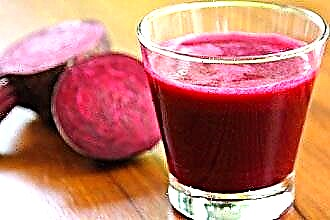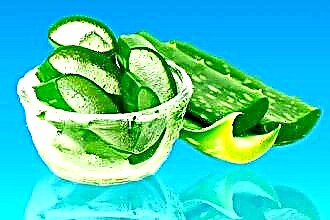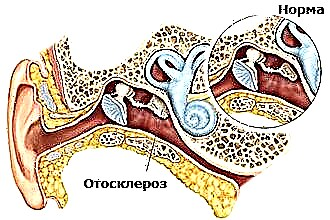Angina is an infectious pathology in which the glands are affected. And a sore throat with abscesses is an indicator that the infection has already gone far and it will not be possible to treat it with the usual methods used at home. The only reliable remedy for purulent sore throat that can cure it is antibiotic therapy as prescribed by a doctor.
How to take antibiotics correctly?
 When a diagnosis of purulent sore throat is established (of course, only a specialist should do this), antibiotics are prescribed immediately. The disease begins to be treated with drugs that have the widest possible spectrum of action. These are cephalosporins, macrolides and some other classes of antibiotics. They destroy a large number of different types of microorganisms, including all those that most often provoke the appearance of sore throat. Thus, even if not targeted, but already effective, treatment measures begin immediately.
When a diagnosis of purulent sore throat is established (of course, only a specialist should do this), antibiotics are prescribed immediately. The disease begins to be treated with drugs that have the widest possible spectrum of action. These are cephalosporins, macrolides and some other classes of antibiotics. They destroy a large number of different types of microorganisms, including all those that most often provoke the appearance of sore throat. Thus, even if not targeted, but already effective, treatment measures begin immediately.
Then it is necessary to take a throat swab from the patient and perform a specific laboratory test with it: culture for antibiotic sensitivity. This examination allows you to determine exactly which types of antibiotics will be most effective for the pathogenic bacteria that caused sore throat in a particular patient. After receiving the results of inoculation, the treatment regimen is adjusted - another drug can be prescribed, its dosage can be increased or decreased, an additional drug added, etc.
Important! On the 3-5th day of treatment, a temporary deterioration in the condition of an adult patient may occur. This is normal - it is associated with the massive death of bacteria and the release of large amounts of toxins.
You can treat angina with antibiotics at home, usually this pathology does not require hospitalization. But remember that antibiotic therapy is a systemic treatment, that is, it affects the entire microflora of the body, including those bacteria that should normally be found, for example, in the intestines. Therefore, in order to prevent the development of dysbiosis, antibiotic therapy should be covered by taking drugs with lactobacilli or ordinary biokefir.
It is necessary to treat angina with antibiotics for at least 1 week, and preferably 10 days. This is due to the fact that this class of drugs is characterized by the so-called cumulative effect. That is, in order for their effect to be fully manifested, it is necessary that a certain concentration of active substances be achieved in the body. In addition, you need to continue to drink antibiotics for at least 3 days after the temperature has dropped and the main symptoms of the disease have subsided. Only in this case the destruction of pathogenic microorganisms by the preparation will be the most complete.
Antibiotics are usually given in tablet form and administered orally to an adult. You can also use an antibiotic spray. When using a spray, it is most convenient to use special nebulizers - this will reduce the consumption of the drug and ensure its delivery directly to the throat. But remember that not every antibiotic can be turned into a spray - the doctor who prescribed it will tell you about this possibility.
General recommendations for treatment
 Of course, the means used in the treatment of purulent tonsillitis are not limited only to antibiotics. No less important is bed rest for the patient, which will minimize the risk of hypothermia, which means even greater suppression of the immune system. Also, it is necessary to strictly limit the patient's contacts with others, especially with children. Do not forget that angina is an infectious disease, which means that the patient can become a source of infection for other people.
Of course, the means used in the treatment of purulent tonsillitis are not limited only to antibiotics. No less important is bed rest for the patient, which will minimize the risk of hypothermia, which means even greater suppression of the immune system. Also, it is necessary to strictly limit the patient's contacts with others, especially with children. Do not forget that angina is an infectious disease, which means that the patient can become a source of infection for other people.
The drinking regimen is also of great importance for purulent sore throat. You can drink:
- tea with lemon and honey;
- herbal teas;
- fruit drinks and fruit juices;
- compotes and decoctions;
- pure mineral water without gas.
The patient should drink a lot - this will contribute to the elimination of toxins and a gentle decrease in temperature.
Important! To treat fever and bring down the temperature with medications for angina should only be when it exceeds 38 ° C.
The patient's room should be warm, but not stuffy. For this, short airings should be carried out periodically. An adult patient is also helped by adherence to vocal rest - this will reduce the load on an already sore throat. Another important recommendation is related to the diet: the patient should eat soft and warm food that does not irritate or injure the sore throat.
The use of disinfectants
It is possible to cure an infection with angina not only with the help of systemic antibiotic therapy. An excellent addition to it will be the local effects of substances that have an antibacterial effect.
For example, gargling with a solution that includes iodine, boiled water, and baking soda is a good home remedy. In addition, you can treat angina with specially prepared aloe infusions. Garlic also has a strong disinfecting effect due to the phytoncides it contains. On its basis, you can make garlic water and various mixtures intended to be both smeared on the throat and taken orally. Finally, you can simply put a clove of garlic in your mouth, bite and drink its juice from time to time - it will help to effectively cure the infection.
Important! With angina, it is not recommended to treat the throat with brilliant green. This drug, although it is a powerful antiseptic, has too strong an irritating and drying effect on the tonsils.
Also, at home, you can use some disinfectant drugs:
- Crush 1 tablet of furacilin and fill it with 1 glass of boiled water. Rinse with this product 5-6 times a day. You can also add 3-5 drops of eucalyptus extract or calendula to it.
- Take 1 tbsp. chlorhexidine and gargle with it. The procedure can be repeated twice a day. In this case, the drug should not be swallowed. Avoid eating or drinking for at least 3 hours after rinsing.
- Pour a small amount of dry potassium permanganate with half a liter of warm water. Dissolve the crystals thoroughly and add 10-12 drops of iodine. This remedy can be used to gargle no more than 4 times a day.
- Get chlorophyllipt from the pharmacy - this is an antibacterial herbal remedy,
 made on the basis of extracts from eucalyptus leaves. You can gargle with this solution 4-5 times a day.
made on the basis of extracts from eucalyptus leaves. You can gargle with this solution 4-5 times a day.
All of these medicines are commonly used as a solution. But it will be more convenient to use a spray that includes the above drugs. To get this spray, you should use a nebulizer - a simple device for spraying liquids. The main condition is that the solution should be thoroughly filtered before filling the nebulizer - then the spray will turn out to be homogeneous, and the device will not be damaged.
Important! Purulent sore throat is not recommended to be treated with Lugol. The solution and spray of this drug contain glycerol, which has a high viscosity, envelops the tonsils and makes it difficult to fight abscesses.
Anti-inflammatory and pain relievers
These medicines cannot cure the very cause of purulent sore throat, but at home they will get rid of the symptoms of the disease and alleviate the condition of an adult patient. First of all, you should pay attention to finished products. This can be a spray, tablets or sucking lozenges, which are easy to buy at the pharmacy:
- Trakhisan;
- Septolet;
- Cameton;
- Neo-angina;
- Faringosept;
- Tantum verde and others.
In addition, at home, the use of all kinds of traditional medicine helps, which are also able to suppress inflammation and relieve pain:
- Rinsing the throat with a solution of baking soda in warm boiled water.
- Using a mixture of dry chamomile and linden flowers. Mix 1 tsp. chamomile and twice the amount of linden and pour a glass of boiling water into the mixture. Next, the solution must be insisted for 30-40 minutes, filtered through cheesecloth and used for rinsing.
- Rinse with horsetail tincture, for the preparation of which 5 tablespoons of dried herbs should be poured with half a liter of boiling water. You need to infuse the liquid for about 20 minutes, and then drain, removing the solid components. Take 5 tbsp for half a liter of boiling water. horsetail. Insist for at least a quarter of an hour, filter and start rinsing.

- Application for washing the throat with a decoction of raspberry leaves. For 1 glass of boiling water, you should take 2 tablespoons. phytopreparation, wait 10-15 minutes and drain.
- Throat rinsing with beetroot juice and vinegar. This remedy is made by adding 1 tablespoon of edible vinegar to 1 cup of shredded beets. After half an hour of infusion, the mixture should be squeezed out and, in fact, a rinse liquid should be obtained.
- Using onion husks, 6 tablespoons of which must be boiled in 1 liter of water. Then the mixture must be cooled, filtered through cheesecloth and rinsing begin.
Important! Gargling and smearing your throat with homemade products is best as often as possible. On average, washing with such solutions should be carried out every hour and a half.
If you do not want to use a ready-made spray, inhalation is a good alternative to this method of administering drugs at home. Here, the ingestion of volatile medicinal substances on the mucous membrane of the throat occurs due to their evaporation under the influence of high temperature. You should place the solution in a container, bend over it, and throw a thick cloth (such as a towel) over your head. This will minimize vapor loss and most of it will enter your throat when inhaled - this is analogous to how a spray works. You can treat angina with inhalation at home using:
- chlorophyllipt solution;
- various herbal remedies;
- oils containing volatile essential components;
- soda solution, etc.
General tonic
The development of angina - an infectious disease - indicates that the effective functioning of the patient's immune system is clearly impaired. Otherwise, she would not have allowed the very possibility of the intensive development of pathogenic bacteria in the body. This means that a speedy recovery will be helped by treatment aimed at maintaining and activating the functions of the immune system. At home, there are a number of possibilities for this:
- The inclusion of easily digestible protein in the diet of the patient (for example, in chicken meat). Protein is the main building block of the immune system.
- Use of honey and / or propolis, which are a rich source of biologically active substances and a number of trace elements.
- Taking vitamin complexes and, in particular, vitamin C, which is necessary for the immune system to work.
- The appointment of immunostimulating agents, for example, interferon or ginseng tincture, which are best prescribed for the viral nature of angina.

 made on the basis of extracts from eucalyptus leaves. You can gargle with this solution 4-5 times a day.
made on the basis of extracts from eucalyptus leaves. You can gargle with this solution 4-5 times a day.


